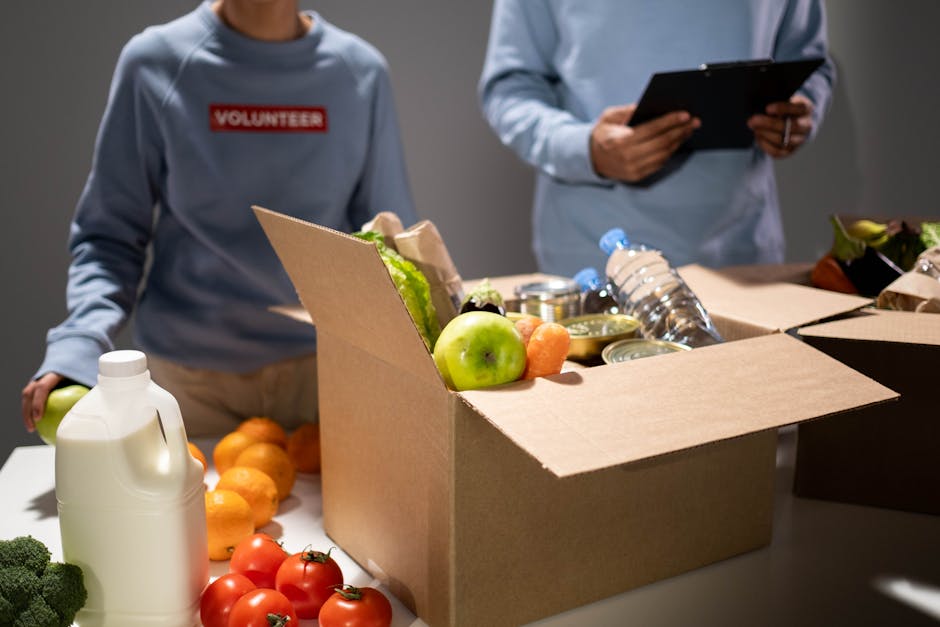As the global population continues to rise, the demand for sustainable and secure food sources becomes ever more critical. In this blog post, we delve into the intriguing world of 미래 식량 안보와 대체식품, exploring how innovations like plant-based meats and cultured proteins are paving the way for a more sustainable future. Join us as we uncover the potential of these food technologies in ensuring food security for generations to come.
Understanding Food Security in the Modern World
The concept of 식량안보 isn’t just about having enough food; it’s about ensuring the stability and sustainability of food sources. With climate change and population growth posing significant challenges, the need for innovative solutions becomes paramount.
What Is Food Security?
Food security refers to the availability and access to sufficient, safe, and nutritious food to meet the dietary needs and preferences of individuals for an active and healthy life. It’s a multi-dimensional issue encompassing economic, environmental, and social factors.
Challenges to Food Security
Several factors threaten global food security, including:
- Climate change impacting agricultural productivity
- Increasing water scarcity
- Depletion of arable land
- Population growth
- Economic instability
The Rise of Alternative Foods: A Solution?
In response to these challenges, 대체식품 have emerged as a promising solution. These include plant-based meats, cultured proteins, and other innovations in food technology.

Why Are Alternative Foods Gaining Popularity?
Alternative foods offer numerous benefits, such as:
- Reduced environmental impact
- Lower resource requirements
- Potential for greater food security
- Ethical considerations
Plant-Based Meats: More Than Just a Trend
식물성고기 is becoming increasingly popular as consumers seek healthier and more sustainable options. Companies like Beyond Meat and Impossible Foods are leading the charge, providing meat-like products that satisfy both taste and nutritional needs.
Cultured Proteins: The Future of Meat?
One of the most exciting developments in the world of 미래식량 is the advent of cultured or lab-grown meat. This innovation promises to revolutionize the way we produce and consume meat.
What Are Cultured Proteins?
Also known as 배양육, cultured proteins are created by cultivating animal cells in a controlled environment, offering a sustainable and ethical alternative to traditional meat production.
Benefits of Cultured Proteins
Cultured proteins offer numerous advantages, including:

- Reduced greenhouse gas emissions
- Decreased land and water use
- Elimination of animal cruelty
- Potential for custom nutritional profiles
Sustainable Agriculture: The Backbone of Food Security
While alternative foods are promising, 지속가능농업 remains crucial for ensuring long-term food security. Innovative farming practices can help mitigate the impacts of climate change and resource depletion.
What Is Sustainable Agriculture?
Sustainable agriculture involves farming practices that meet current food needs without compromising the ability of future generations to meet their own needs, focusing on environmental health, economic profitability, and social equity.
Innovations in Sustainable Farming
Some exciting developments in sustainable agriculture include:
- Vertical farming
- Precision agriculture
- Aquaponics and hydroponics
- Agroforestry
The Role of Food Technology in Future Food Security
The field of 푸드테크 is rapidly evolving, providing new tools and methodologies to enhance food production and security.
How Is Food Tech Shaping the Future?
Food technology encompasses a range of innovations designed to improve the efficiency and sustainability of food production, including:

- Biotechnology and genetic engineering
- Advanced food processing techniques
- Smart farming technologies
- Food waste reduction solutions
The Impact of Food Tech on Alternative Proteins
Advanced food technologies are crucial in the development and production of 대체단백질, enhancing their affordability and accessibility.
Conclusion: Embracing a Sustainable Food Future
As we navigate the complexities of global food security, embracing 미래 식량 안보와 대체식품 is not just an option but a necessity. Through innovations in food technology and sustainable agriculture, we can build a resilient food system that supports both people and the planet. By supporting these advancements, we take a step towards a future where food security is a reality for all.
We invite you to share your thoughts in the comments section below. How do you see alternative foods shaping the future of food security? Don’t forget to share this post with your network to keep the conversation going!
